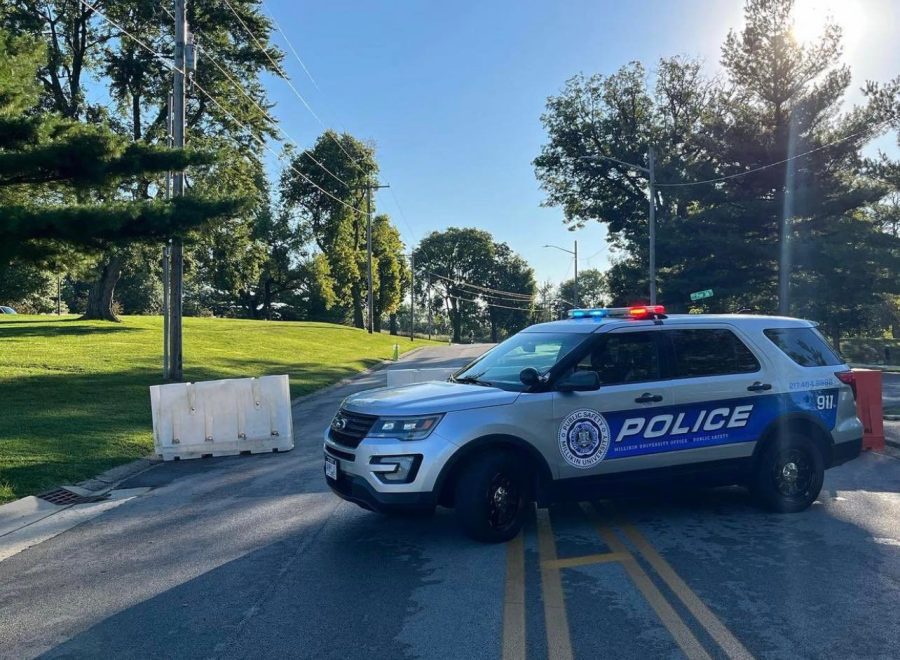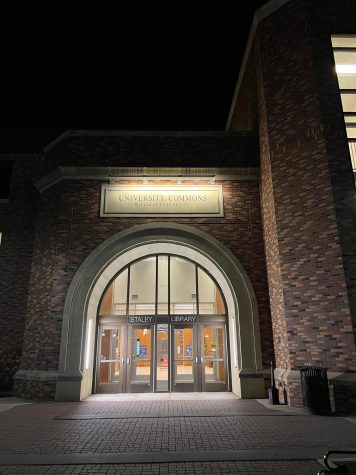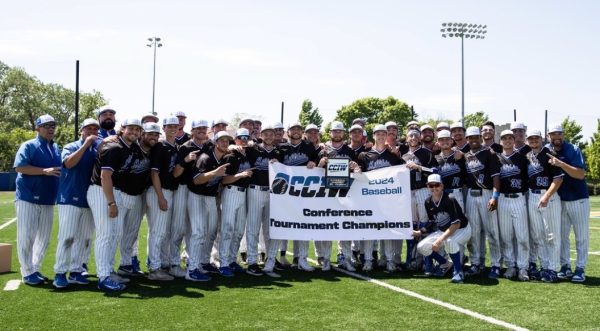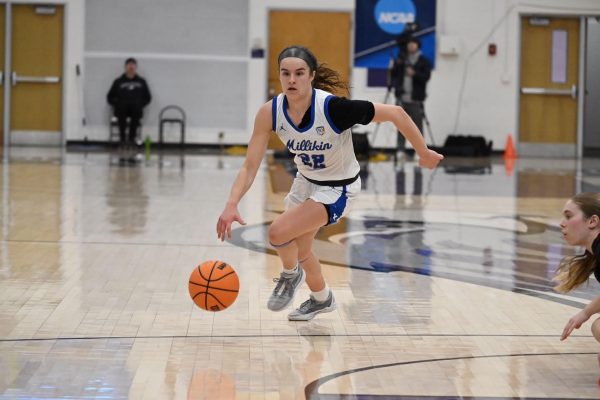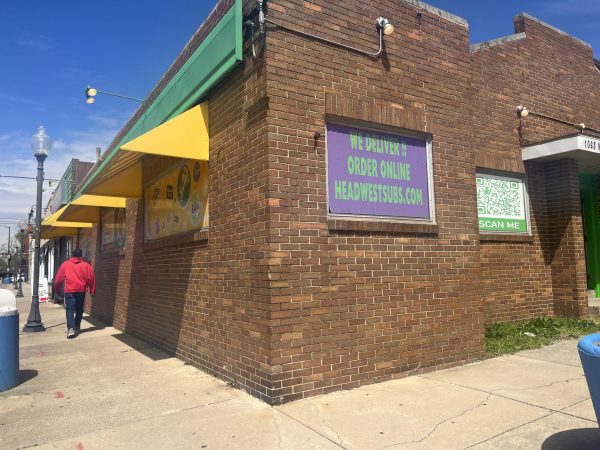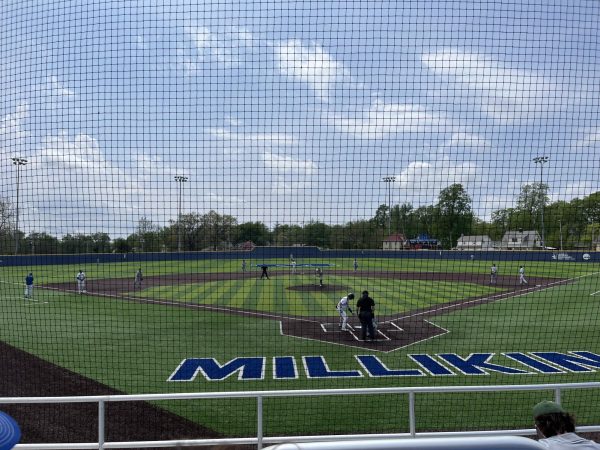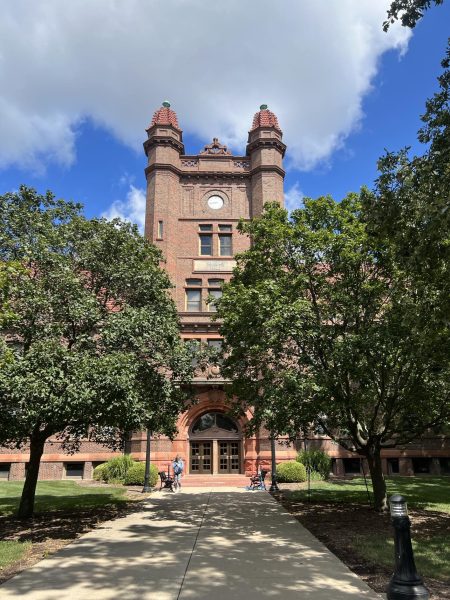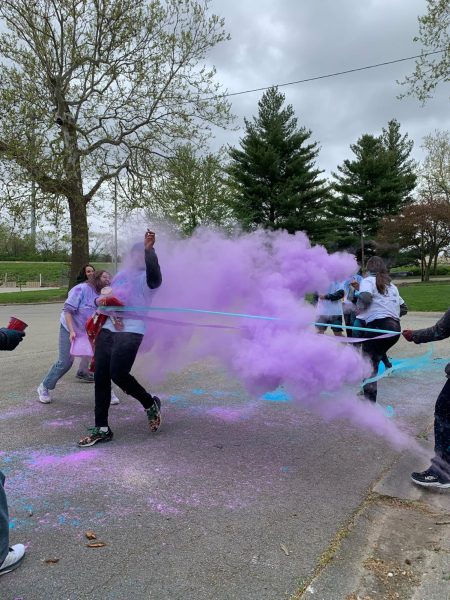What Makes a Campus Emergency?
Millikin Police help block roads for the Millikin Triathlon
This semester, students have tapped their pencils through classes and slept peacefully in their dorms, unaware of Millikin police responding to safety threats just outside.
After a September 25th email informed recipients of a sexual violence incident that had occurred the previous night, Millikin students Emily Kemp, Victoria Villagomez and Cyla Vos grew concerned about the university’s safety alert system: Though all three are residents of the Woods at Millikin, the apartment complex where the attack transpired, only one had received the email notification.
“It seems like there is a disconnect between informing the students of what is happening around them and the policies that they’re following,” Kemp says.
Learning this information retroactively, these students couldn’t help but wonder what other instances of violence on campus they were not made aware of.
In just a brief conversation, the women realized that they had recently witnessed two threatening incidents that one another had not known about: an act of domestic violence during daytime hours outside of the University Commons and a Decatur police response outside of Shilling hall in the evening. Hearing about these cases from one another and not from public safety, they were shocked.
“I think that it becomes a public issue whenever people aren’t informed, and I think that people can’t prepare themselves for instances where they might find themselves in violent situations,” Kemp says.
The 1990 Clery Act is a federal statute that requires crimes such as these to be recorded and released in an annual report, but no law requires students to be immediately notified. Millikin’s 2022-2023 Keep Safe on Campus publication, the annual document released in compliance with the Clery Act, explains that the campus will be promptly alerted of any “significant or dangerous situation involving an immediate threat to the health or safety of students or employees occurring on the campus.”
The recent Woods sexual assault email, however, falls under the “timely warning” category—the survivor was not able to report the attack until the following day, and the attackers remained unidentified. Director of Public Safety Chris Ballard, who sent out the email, explains that the decision to make such alerts can be rather subjective. On-duty dispatch staff is authorized to send notification for anything “directly impacting property or known to involve a student,” according to Ballard.
For example, some non-violent issues, like patterns of motor vehicle burglaries, have warranted notification in the past. Through constant communication with local police, Ballard and his team are able to remain aware of relevant threats, ready to respond to anything that may impact Millikin’s campus.
“It all goes back to the ‘Is there a potential for an ongoing threat to the campus community’s safety?’” Ballard says.
Millikin’s campus community was not notified about the domestic dispute in front of the UC, for example, because of the speed with which the conflict was resolved.
“We responded within one minute of the call and had both parties separated and identified,” Ballard says.
Without notification, community members’ concerns were left to grow. Students approached Dr. Linda Collinsworth, a Millikin professor known for teaching a course entitled “Violence Against Women,” with their concerns.
According to Collinsworth, incidents are too-often labeled as domestic disputes in order to minimize their severity—a problem she does not want to see grow within the community. While she does not believe this was by any means an attempt to diminish a serious threat, she worries that with students remaining unaware of such incidents, the root of the problem may lie deeper in the community than officers realize.
In Collinsworth’s class, students learn about the Virginia Tech massacre, a shooting that resulted in 32 deaths. The first two casualties were believed to be an isolated case of domestic violence, resulting in a slower apprehension of the gunman.
“The point is that those kinds of incidents aren’t taken as seriously as other incidents are,” says Collinsworth.
Kemp, Villagomez and Vos hope that voicing their concerns will help open an ongoing conversation with Millikin’s Department of Public safety regarding what does and does not warrant campus-wide alert.
“I’m sure that they are following the correct legal policies when it comes to reporting, but I also believe that the best way to prevent violence is for people to be aware of the fact that there is violence happening around them,” Kemp says
Of course, Millikin Police will never be able to send out campus-wide alerts every time they respond to a dispatch—they have plenty of work to do to resolve such issues already.
“If somebody’s responding to them, that’s why they’re there,” Ballard says. “So a lot of what I would consider day-to-day isn’t going to rise as a critical ongoing community safety threat.”
And besides, students’ and faculty members’ inboxes would be too flooded for the notifications to matter. Rather, concerned students and the Department of Public Safety are searching for a balance between feeling a lack of communication and an overflow of information.
Ballard emphasizes that he and his department are always open to talking to students, and maintain a daily crime and fire log that anyone interested is welcome to stop by Walker Hall and read.
“We see ourselves as in partnership with [the students],” he says. “So if something’s concerning them or they’re worried about activity, they can report it to us and we really appreciate it.”
Students can contact the Department of Public Safety at (217)-464-8888 with any questions or concerns.

Page Shields is a junior at Millikin University studying English professional writing, publishing & editing, and math. Decaturian writer and editor-in-chief...

